Event held to discuss results of EU programme on combatting gender stereotypes and violence
Date:
On 9 June, 2023, an event was held to discuss the first stage of the regional programme "European Union for Gender Equality: Together against gender stereotypes and gender-based violence," which was funded by the European Union and implemented by UN Women Moldova and UNFPA Moldova.
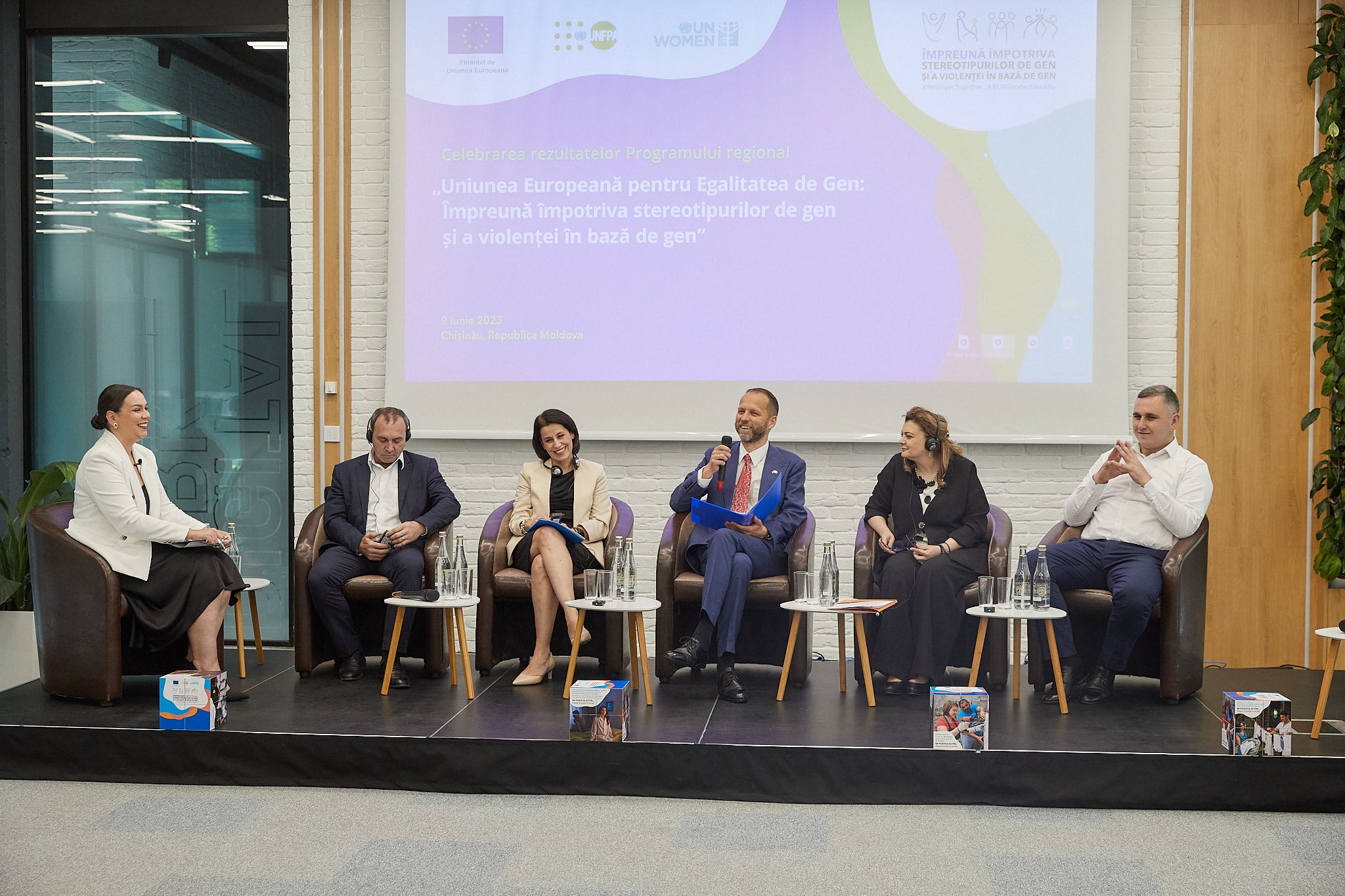
Photo credit: Aurel Obreja/UN Women
The programme aimed to promote gender equality, combat stereotypes about the role of women and men in the family and society, increase men's involvement in childcare and prevent gender-based violence. Certain good practices learned from the programme were implemented in other regions of Moldova, including Ialoveni, Rezina, Drochia and Dondușeni.
During the final event, participants of the programme met to exchange their views and conclusions on the programme's activities. Those in attendance included representatives from central and local public authorities, civil society organizations and members of the international community.
His Excellency, Jānis Mažeiks, Ambassador of the European Union to the Republic of Moldova, spoke about the programme’s results and emphasized the role of women and men in promoting gender equality. “Experience shows us that communities where women are actively involved in various activities are more prosperous and developed,” he said. “We hope that the good practices accumulated in Fălești and Strășeni districts will be replicated in other regions of the country."
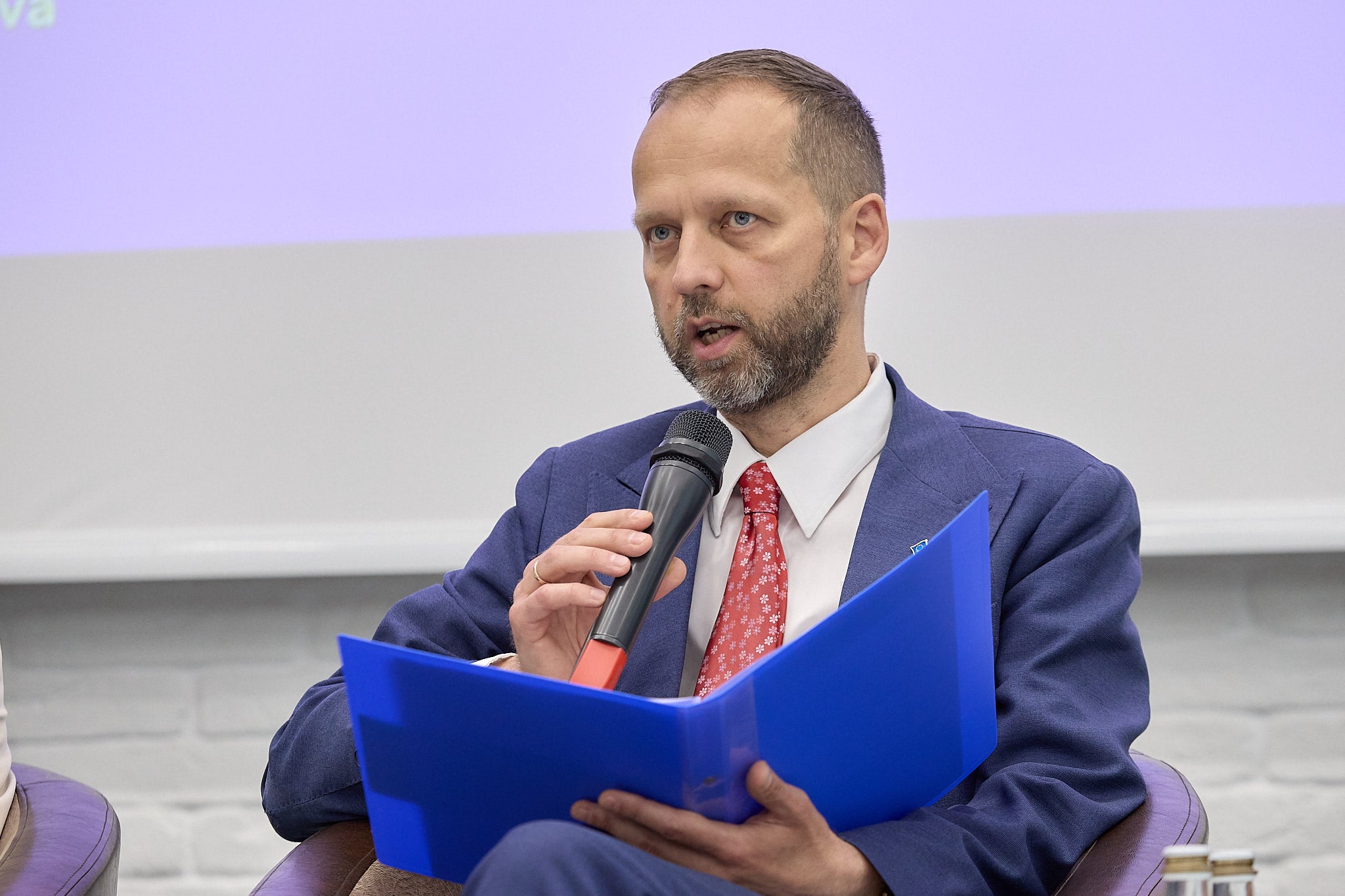
Photo credit: Aurel Obreja/UN Women
UN Women Moldova’s Country Representative, Dominika Stojanoska, expressed her gratitude for the efforts made during the three years of the programme. "Today is a good opportunity to do an introspection and analyse the results obtained and the lessons learned during the programme,” she said. “I would like to thank you, because together we have contributed to combating gender stereotypes related to work, sharing household chores, educating children, involvement in decision-making processes and combating gender-based violence. It was a joint effort, and I wish us success in the next phase of the programme."
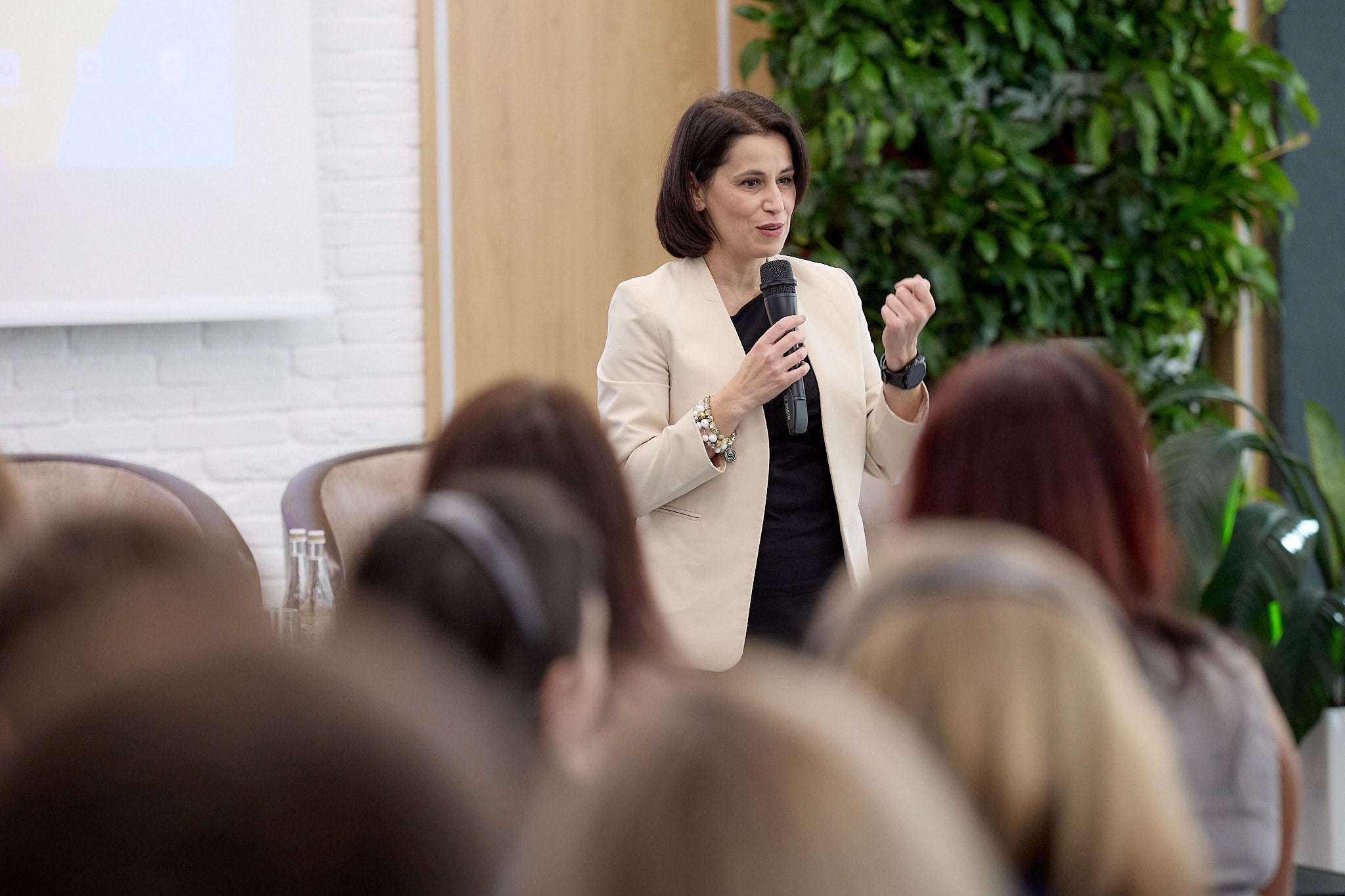
Photo credit: Aurel Obreja/UN Women
Nigina Abaszada, UNFPA’s Resident Representative to the Republic of Moldova, also spoke about the importance of continuing this programme. "The three years of hard work promoting equal involvement of men and women in the family, combatting stereotypes and strengthening a society based on equal rights and elections have yielded results,” she said. “We are glad that these advances will be included in the second phase of the programme, where we will offer new initiatives and opportunities, including for people with disabilities and young people. We all need to be involved in promoting social norms based on human rights."
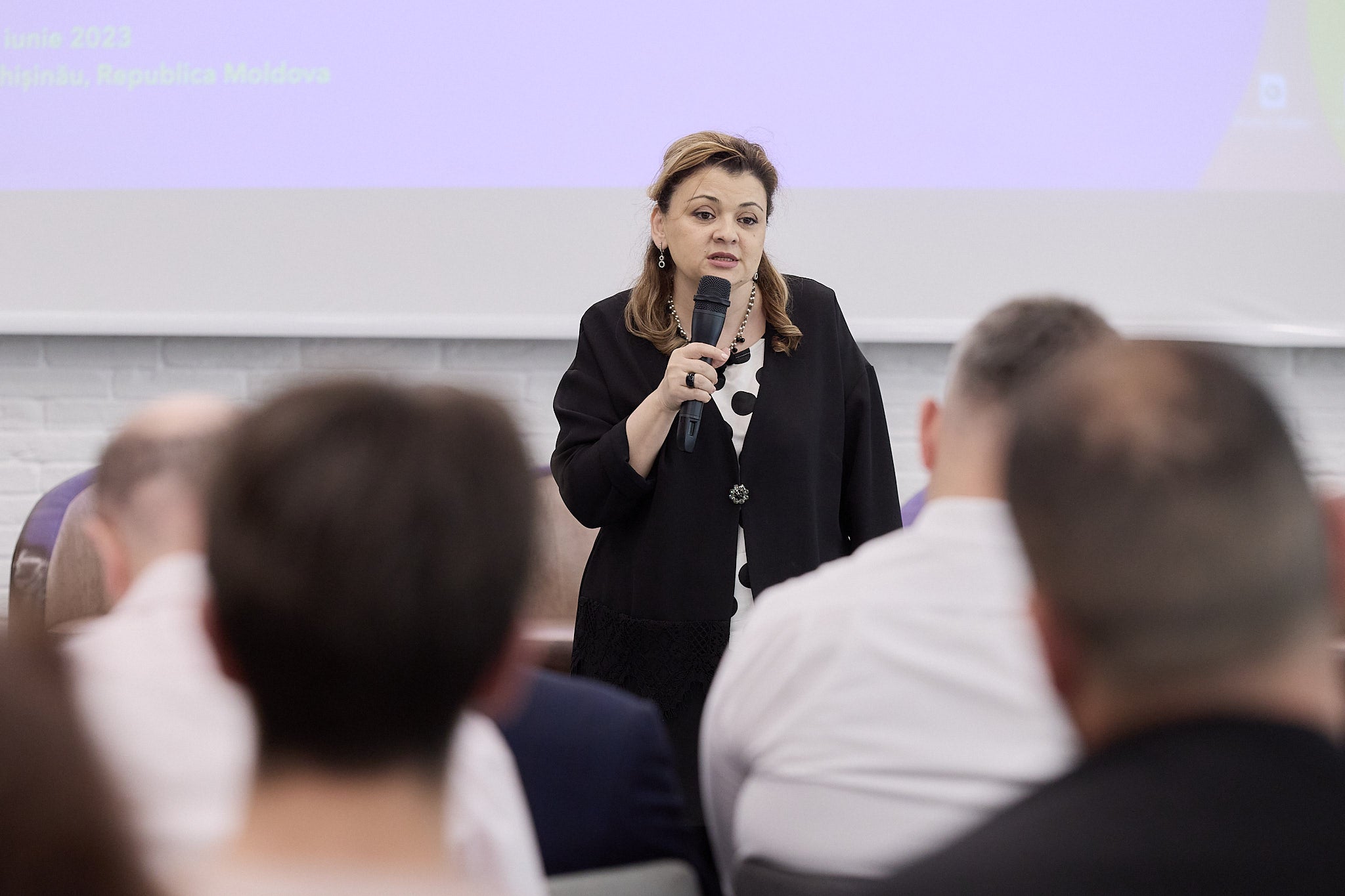
Photo credit: Aurel Obreja/UN Women
The programme’s results were illustrated through figures on the involvement and positive impact of its activities. Several civil society organizations implemented grant projects, covering a variety of activities on combating gender stereotypes and promoting gender equality principles.
Over 2,900 people from 12 localities (in Ialoveni, Rezina, Fălești, Strășeni districts) participated in social theater activities that addressed stereotypes on women and men’s roles in society. Implemented by Institutum Virtutes Civilis, the social theater activities took place within a project called "Young men and women for equality and non-discrimination." Through the same project, groups of young men and women from the two districts implemented nine other local initiatives to promote gender equality and combat stereotypes.
Lilia Pascal, Head of the Gender Equality Policy Department within the Ministry of Labor and Social Protection, thanked the participants for carrying out activities in Strășeni and Fălești. “I believe that these practices must be multiplied in other regions of the country, given that they emphasized the role of men in promoting gender equality and preventing and combating violence against women,” she said. “Such projects need to be supported and continued, as they help us involve more communities, especially in rural areas, and inform them on this dimension.”
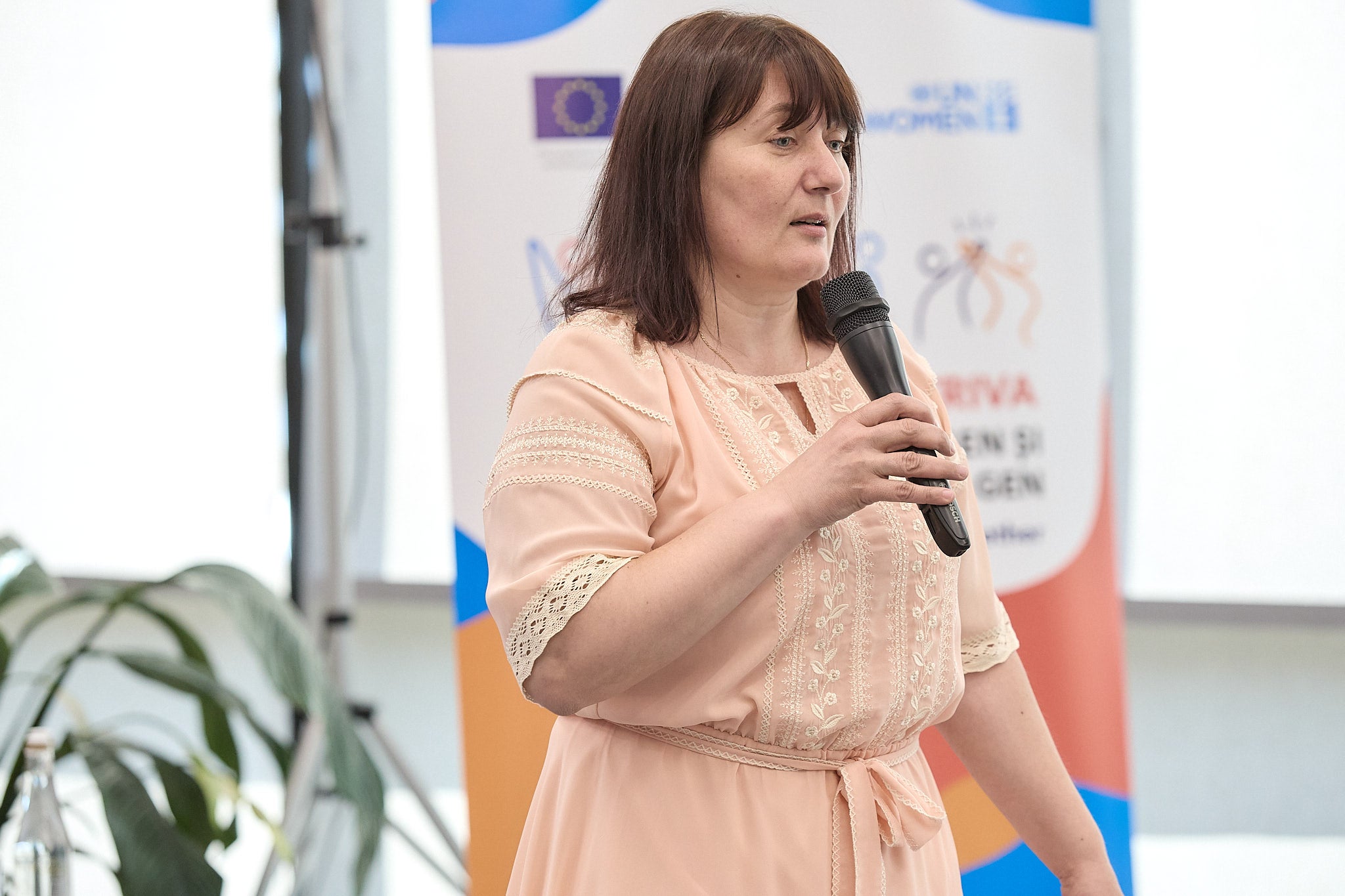
Photo credit: Aurel Obreja/UN Women
In one of the programme’s projects, "Accept disability, not violence,” which was implemented by Motivația, an NGO, 40 women with disabilities and mothers of children with disabilities from the two districts attended a series of trainings, psychological counselling sessions and support groups, where they strengthened their knowledge about their rights, abilities, gender equality and gender-based violence.
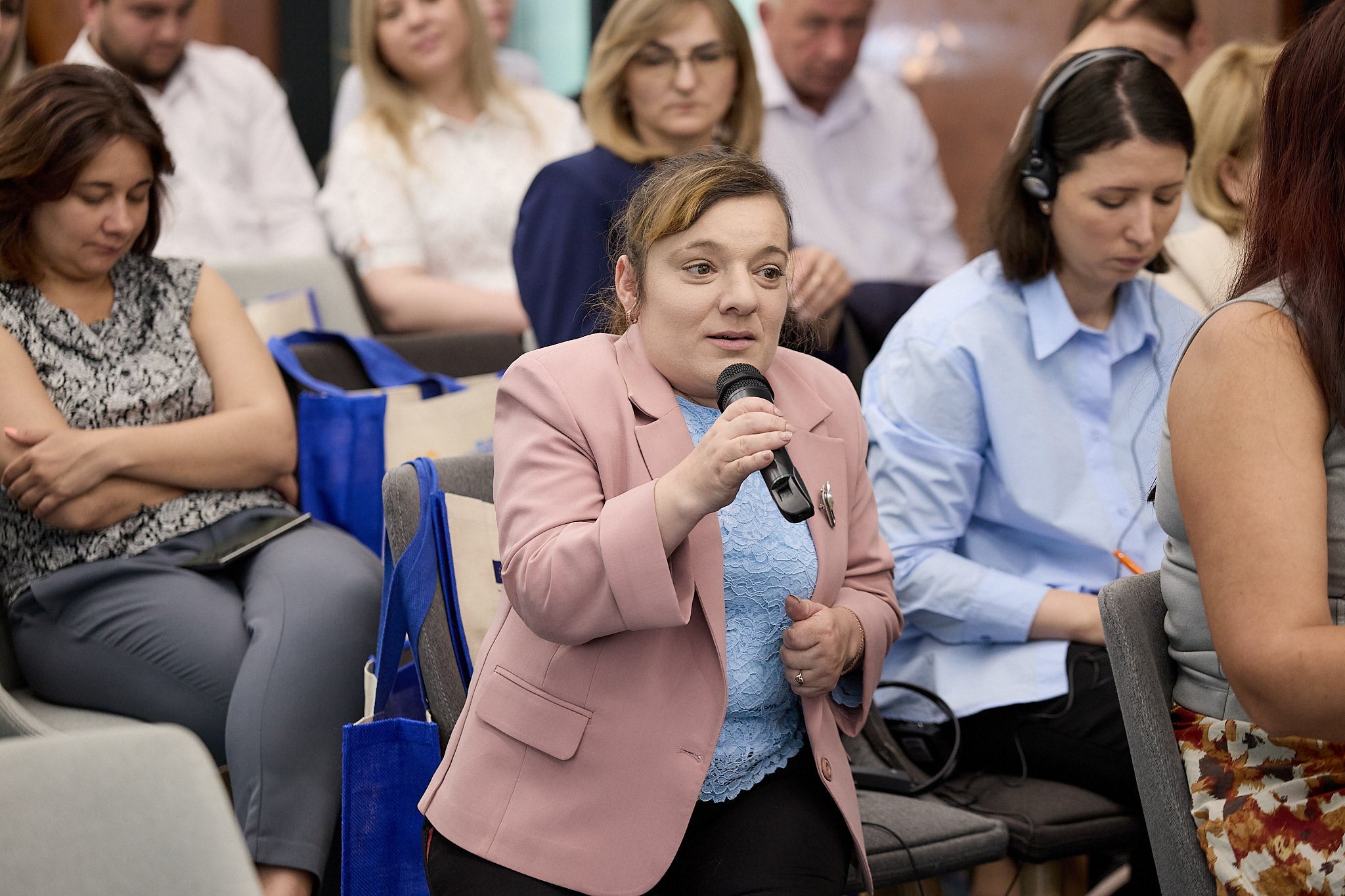
Photo credit: Aurel Obreja/UN Women
Another project, implemented by the Institute for Family and Social Initiatives, gave young couples access to gender-sensitive premarital and couples’ counseling through a platform and online course. Through the same project, 22 priests from Strășeni and Fălești districts increased their knowledge about domestic violence and the importance of premarital counseling as a prevention measure.
Adti Educat (Tekedu), carried out another project, enabling 39 girls and 1 boy from Strășeni and Fălești to receive a career guidance course in ICT and STEM.
"It is necessary to move to a new stage [of the programme] involving educational institutions, in order to transmit information as widely and correctly as possible,” said Viorel Jardan, the head of Strășeni district, with confidence. “Gender equality is about equal values and the rights of every person, and through correct information and concrete activities we can help society better understand these issues. We are open, and we will continue to get involved.”
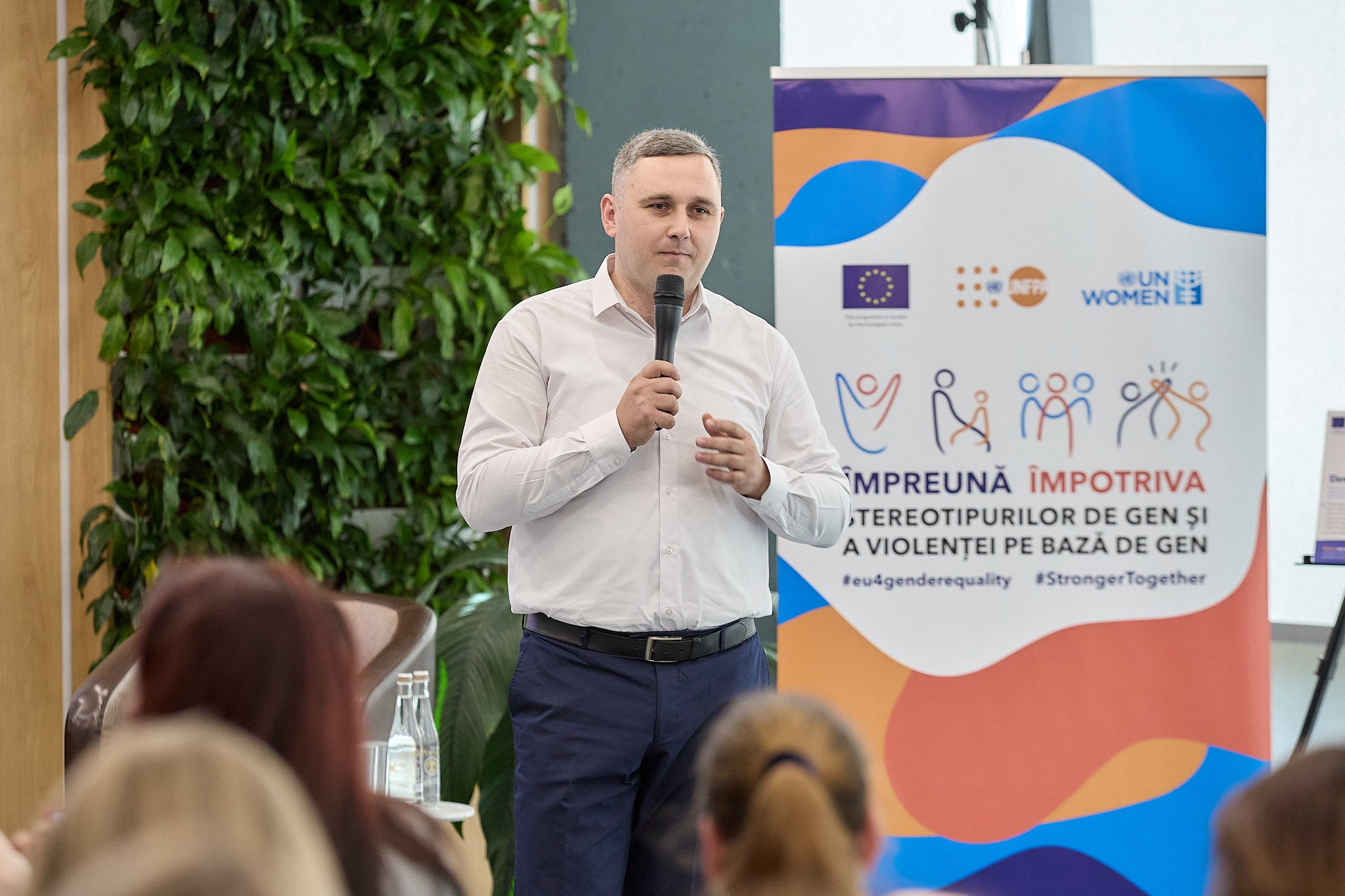
Photo credit: Aurel Obreja/UN Women
The programme also introduced Fathers' Clubs for the first time in Moldova, a platform that teaches fathers and future fathers how to get more involved in their children’s educations and childcare. A total of 19 Fathers' Clubs were created in the programme districts, with over 300 boys and men participating in activities that bolstered their understanding of the need to be involved in sharing household chores and childcare. The clubs were developed in collaboration with Centrul de Informare și Documentare privind Drepturile Copilului din Moldova (CIDDC).We want our children to have a proper understanding of the role of the mother and the role of the father in the family, and this programme has helped us work on that,” emphasized Sergiu Fîntînă, the head of the Fălești district. “Both parents must be involved in educating their children."
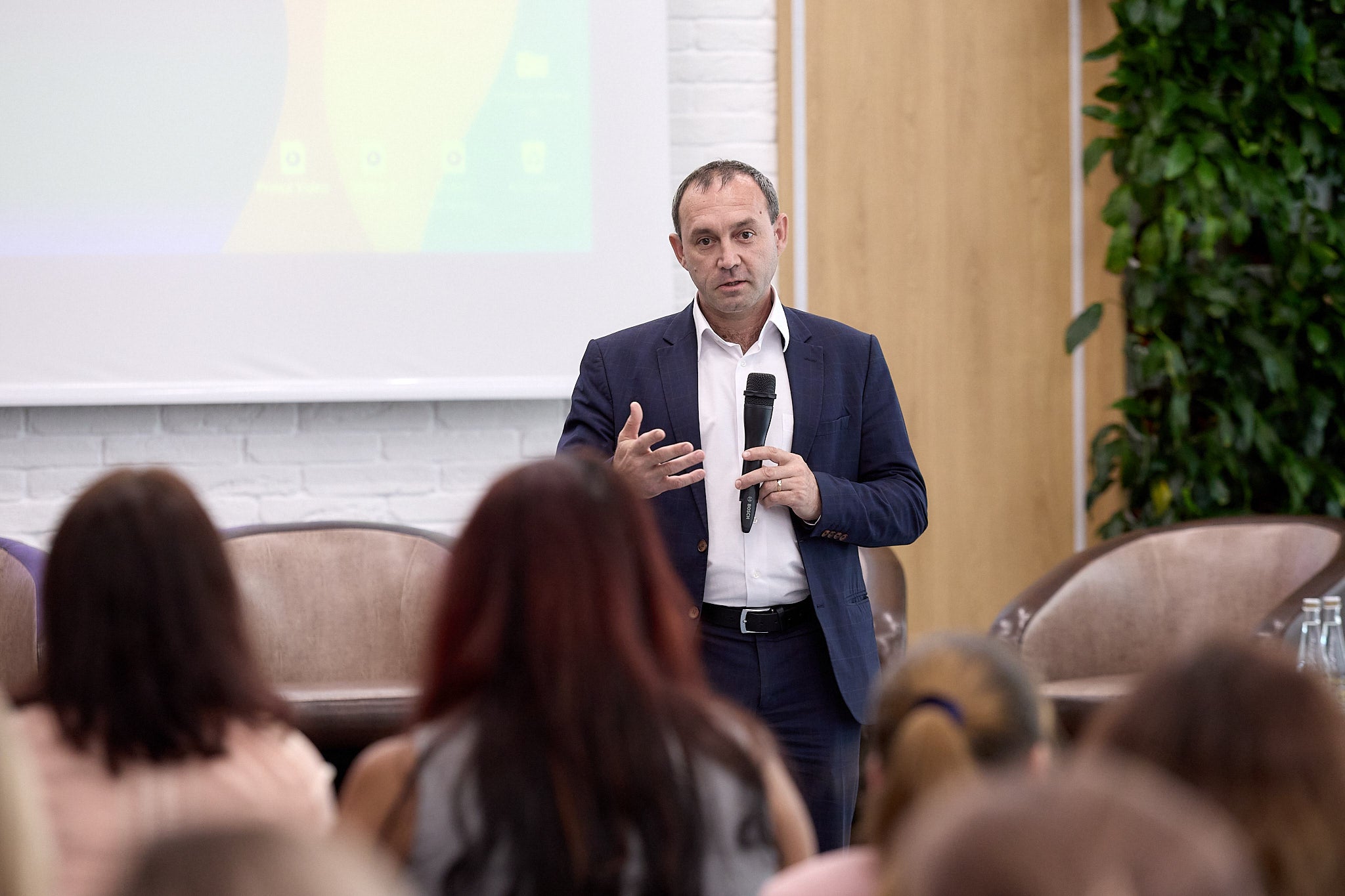
Photo credit: Aurel Obreja/UN Women
Last but not least, over 87 members of multidisciplinary teams from Strășeni and Fălești districts strengthened their knowledge and skills in their work with perpetrators through training sessions conducted in collaboration with the NGO, Artemida.
At the regional level, the programme "European Union for Gender Equality: Together against gender stereotypes and gender-based violence," funded by the European Union and implemented by UN Women Moldova and UNFPA Moldova, took place in six of the EU’s Eastern Partnership countries: Armenia, Azerbaijan, Belarus, Georgia, Moldova and Ukraine.